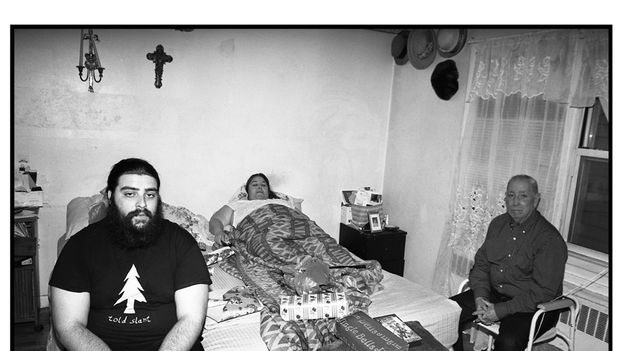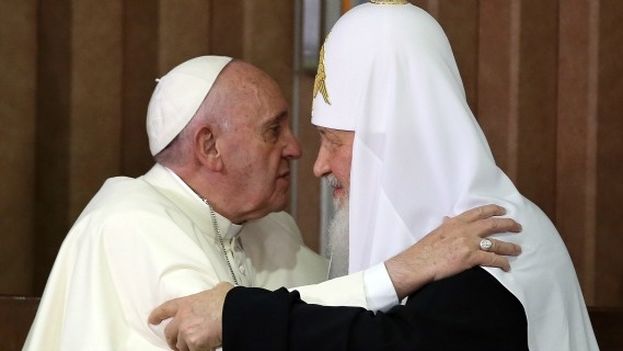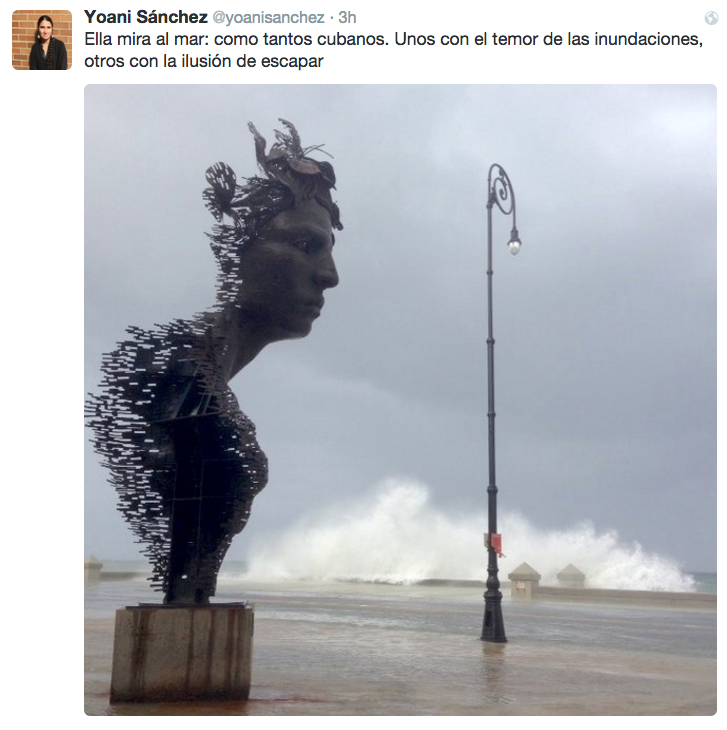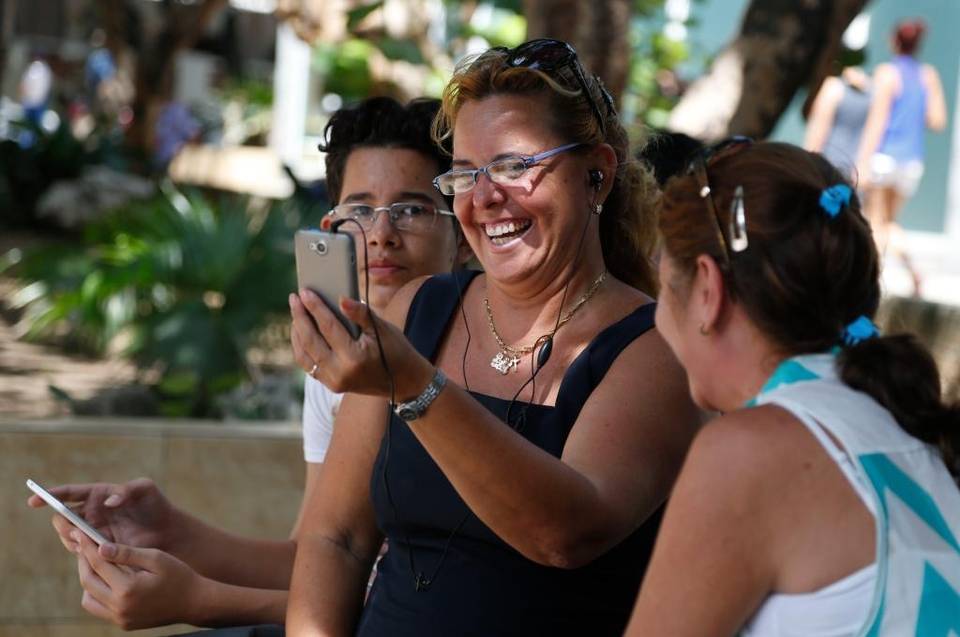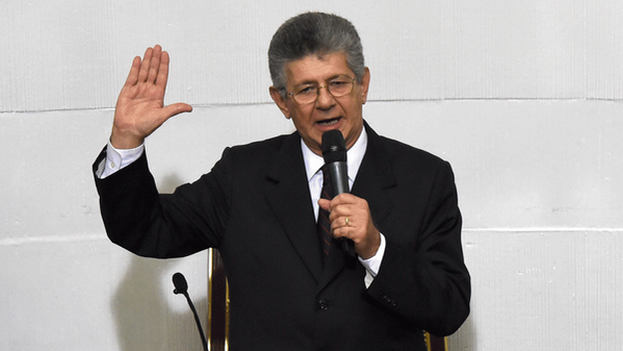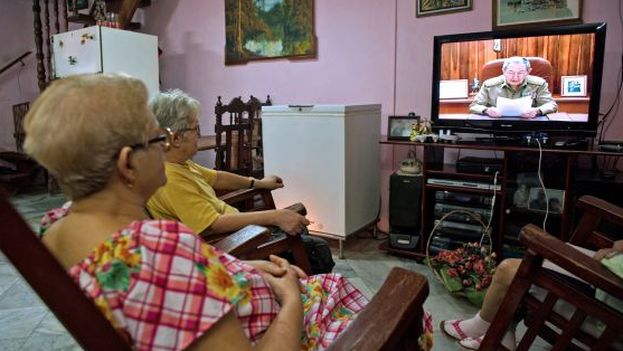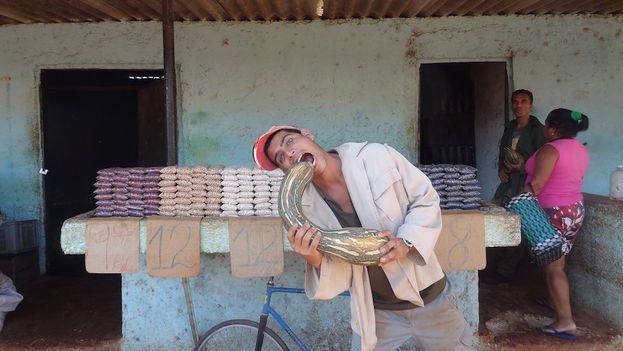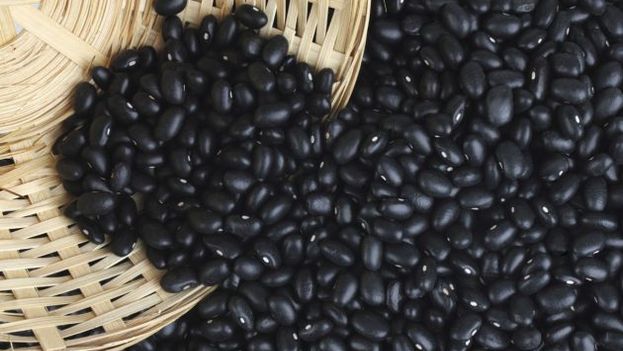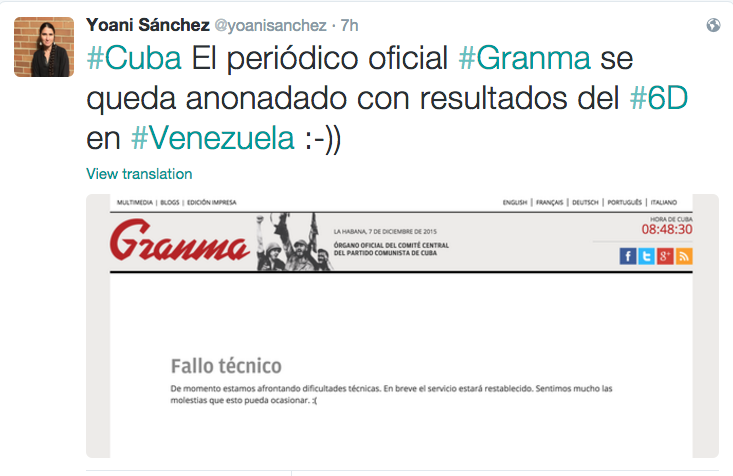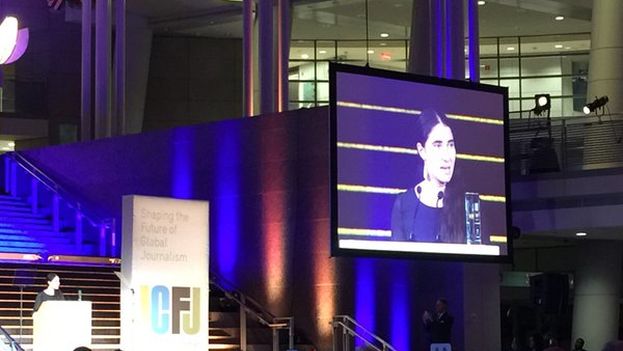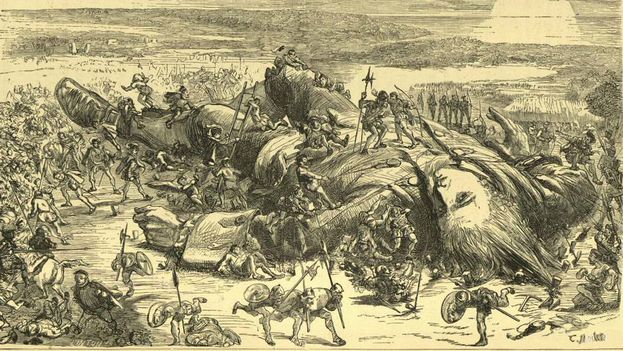
![]() 14ymedio, Yoani Sanchez,Generation Y, Washington, 3 March 2016 — A few days after the murder of two young Argentine women tourists in Ecuador, a man in the city of Santa Clara in Cuba set fire to his house with his two children inside, as revenge against his ex-wife. Violence against women runs freely in Latin America and on most of this planet. A day like this March 8th, a day of tributes, flowers and speeches full of praise, does not erase the horror, nor the belittling.
14ymedio, Yoani Sanchez,Generation Y, Washington, 3 March 2016 — A few days after the murder of two young Argentine women tourists in Ecuador, a man in the city of Santa Clara in Cuba set fire to his house with his two children inside, as revenge against his ex-wife. Violence against women runs freely in Latin America and on most of this planet. A day like this March 8th, a day of tributes, flowers and speeches full of praise, does not erase the horror, nor the belittling.
The constant aggression we women suffer takes the form a blow from an abusive husband, but also is present in every minute of our lives, both in the professional order and in the social order. To walk alone at night, to sit alone in a park, or to take the sun on a beach “unescorted” by a partner, are moments that many Cuban women experience with more discomfort than enjoyment. continue reading
The limits within which we can move are made clear very early: Respectable or whore? Good wife or questionable spinster? Dedicated mother or bad mother? Submissive or quarrelsome? Made up or slovenly? Good cook or useless in the kitchen? Every attempt to free ourselves from these narrow frames implies double the effort for a man and a proportional quantity of external insults.
The violence starts from the time we’re small, when we prepare to be “beautiful and delicate,” forcing our tastes, affinities and vocations. They impose on us to be condescending and sweet, demure and silent; subordinate to masculine initiative and patiently bearing all. The ways girls are raised, in their families and in the education system still prevailing in our country, lock us into narrow, 19th century gender roles.
We are measured on more demanding scales and asked for the highest levels of patience. If a woman is the victim of lewd abuse in the street, most people’s immediate reflection is that she is wearing “very provocative clothing” or wiggling her hips too much. The aggressor is considered someone who “is acting like a man” while the woman is the brunt of the worst adjectives.
Women television presenters must be luxuriant and attractive, while her masculine colleagues can be gray-haired, double-chinned and pot-bellied, and no one bothers him about it. In government something else happens. The “male chauvinist” power we have lived under for nearly 60 years likes to be photographed with pretty faces and hold honeyed ceremonies on International Women’s Day. They give us flowers and call us “compañeras,” while the rest of the year they put the brakes on women’s demands and the independence of any initiative for gender equality.
What has happened to Cuban feminism is what happens to a professional woman who ends up locked in the house with a jealous and dim-witted husband. They take her best years, keep her from experiencing life and taking to the streets to demand her rights and now demand that she remain calm, gentle, supportive of those who mix testosterone and power, which is another form of violence masked by supposed praise and compliments.
The appropriation of our bodies by force is a heinous crime, as is taking our freedom, imposing on us a model of what we should be, and prolonging these discriminatory patterns, this false market of values, where ovaries are worth less than testicles.

